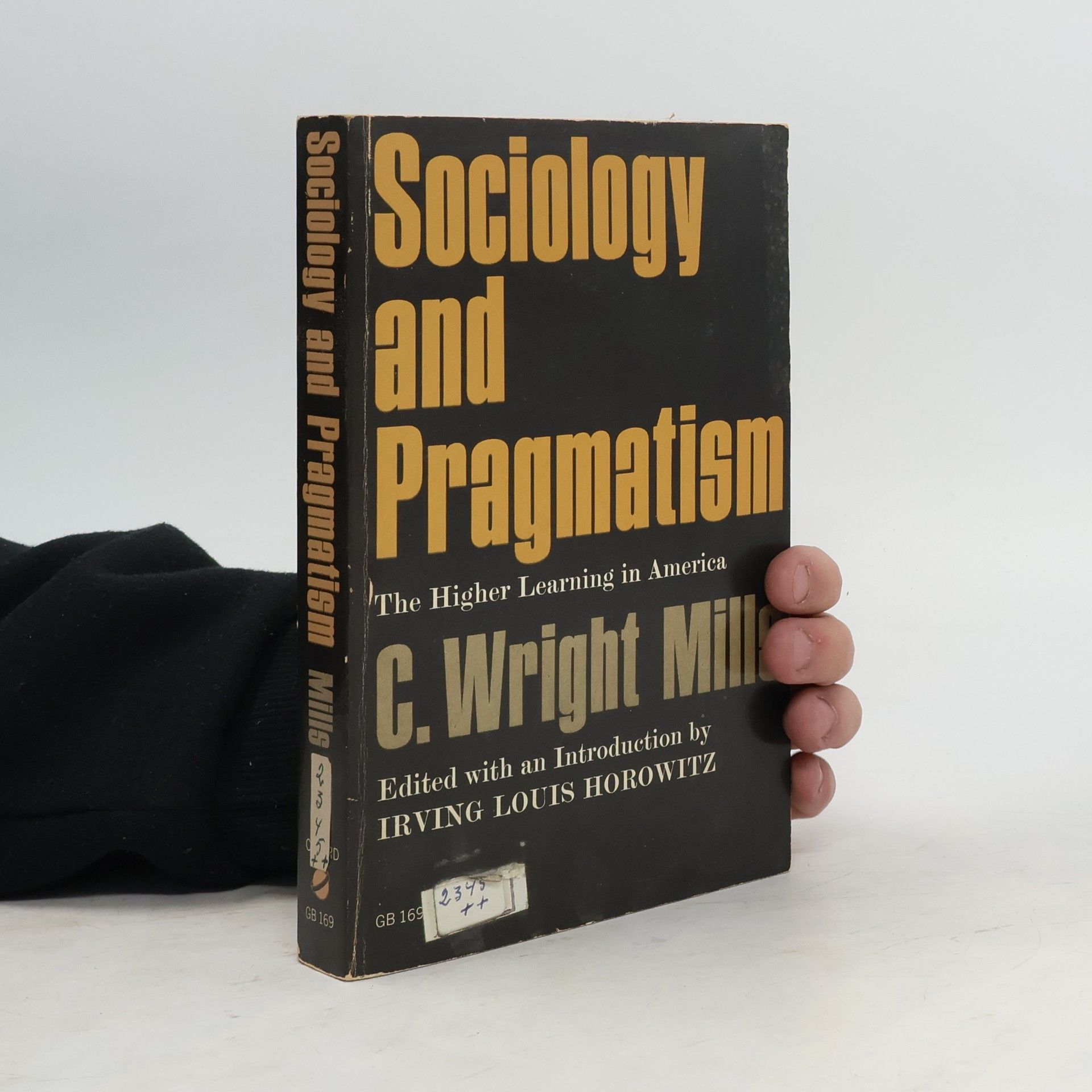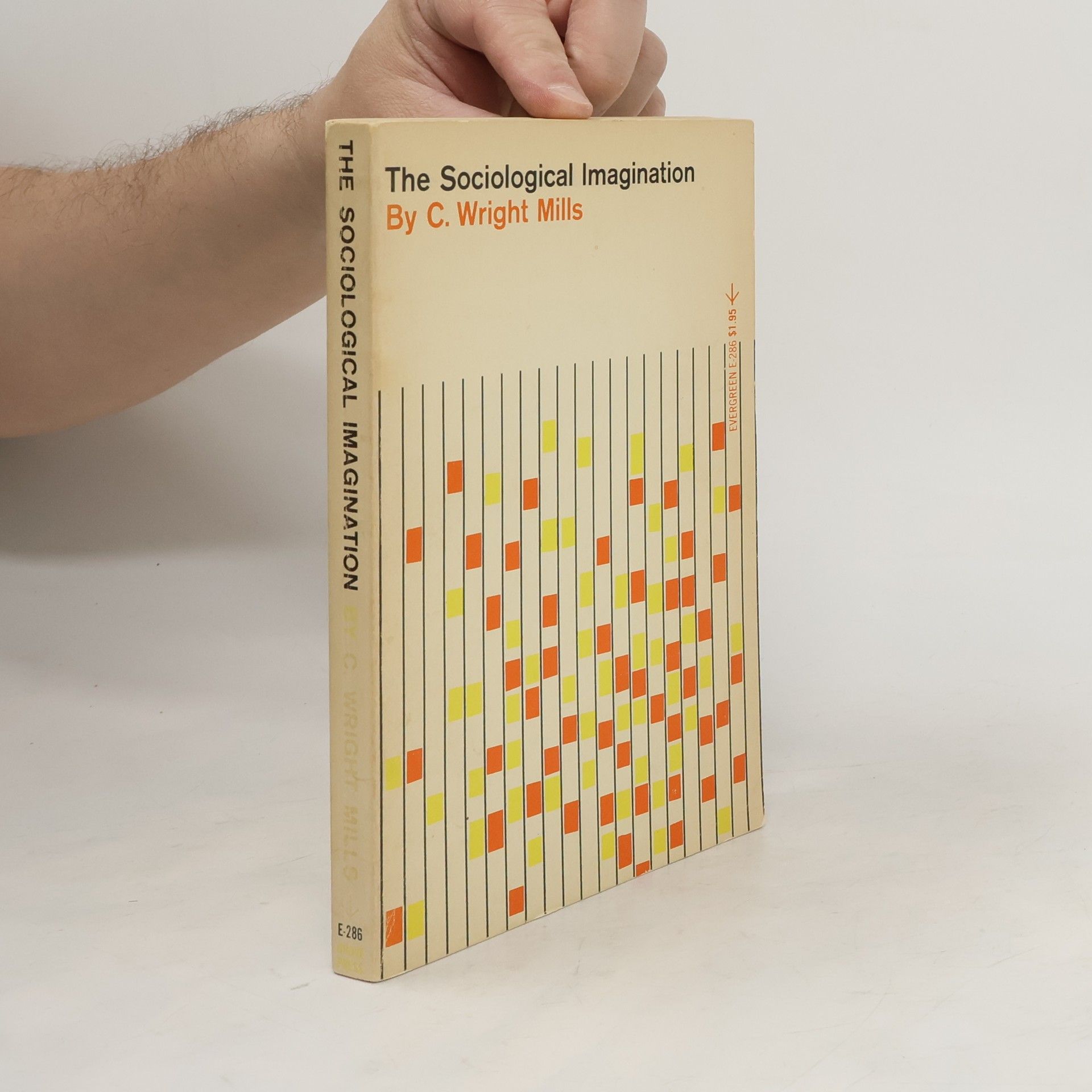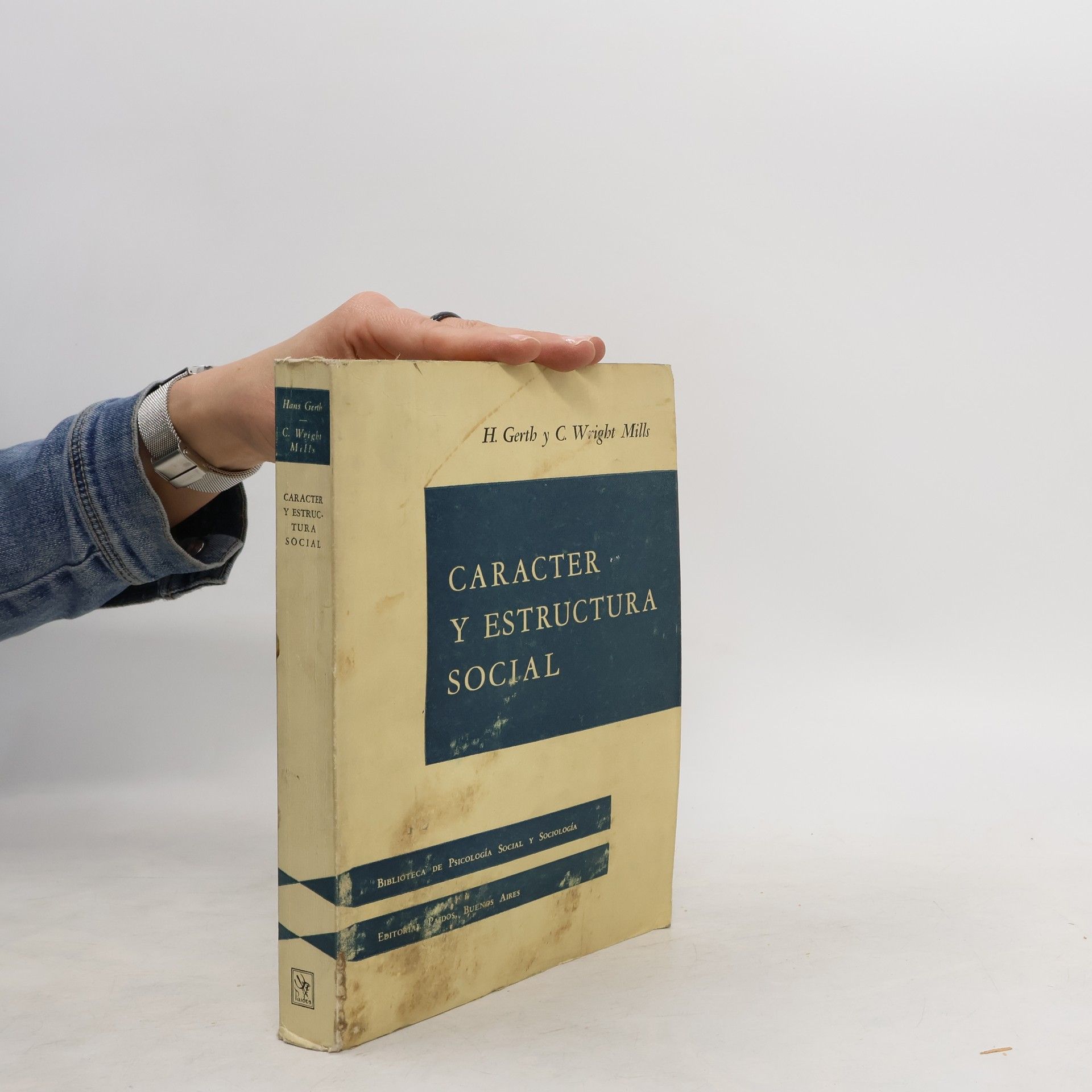Charles Wright Mills Libros
Charles Wright fue un innovador que rompió con los modos de ficción tradicionales, abriendo camino a los vanguardistas afroamericanos. Sus primeras obras, publicadas en los años 60 y principios de los 70, fueron novelas cortas apasionadamente idiosincrásicas, de gran corazón y tragicómicas. La escritura de Wright se centró en la existencia afroamericana de mediados del siglo XX, ofreciendo una lente única sobre la época. Su habilidad para mezclar humor y tragedia dota a su obra de profundidad y resonancia.







White Collar; the American Middle Classes...
- 410 páginas
- 15 horas de lectura
Unlike some other reproductions of classic texts (1) We have not used OCR(Optical Character Recognition), as this leads to bad quality books with introduced typos. (2) In books where there are images such as portraits, maps, sketches etc We have endeavoured to keep the quality of these images, so they represent accurately the original artefact. Although occasionally there may be certain imperfections with these old texts, we feel they deserve to be made available for future generations to enjoy.
First published in 1956, The Power Elite stands as a contemporary classic of social science and social criticism. C. Wright Mills examines and critiques the organization of power in the United States, calling attention to three firmly interlocked prongs of the military, corporate, and political elite. The Power Elite can be read as a good account of what was taking place in America at the time it was written, but its underlying question of whether America is as democratic in practice as it is in theory continues to matter very much today.What The Power Elite informed readers of in 1956 was how much the organization of power in America had changed during their lifetimes, and Alan Wolfe's astute afterword to this new edition brings us up to date, illustrating how much more has changed since then. Wolfe sorts out what is helpful in Mills' book and which of his predictions have not come to bear, laying out the radical changes in American capitalism, from intense global competition and the collapse of communism to rapid technological transformations and ever changing consumer tastes. The Power Elite has stimulated generations of readers to think about the kind of society they have and the kind of society they might want, and deserves to be read by every new generation.
This highly acclaimed study of the social sciences critiques the ascendant "schools" of sociology in this country and reassesses the tradition of classic sociological analysis.
From Max Weber: Essays in Sociology
- 512 páginas
- 18 horas de lectura
An introduction to the work of the greatest German sociologist and a key figure in the development of present-day sociological thought.
Významné dílo pokrokově orientovaného amerického sociologa (1916–1962) analyzuje všemocné postavení elity v USA. Život tu formují představitelé hospodářství, politiky a vojenství. Působí na masy tiskem, rozhlasem a televizí; těmito prostředky vytvářejí v nich stereotypy myšlení. Přímo nevládnou, ale „manipulacemi“. Ponechávají např. iluzi demokracie. Předmluva jednak objasňuje autorovu humanistickou a racionalistickou koncepci, jednak sleduje vývoj teorie elity.



